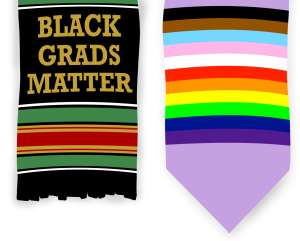UTSA will be reaccredited by the Southern Association of Colleges and Schools-Commission on Colleges (SACS-COC) in 2010.
College accreditation is a formal recognition, or guarantee of some sorts that an entire school or college or one of its programs meets certain standards and provides quality education.
The SACS-COC process consists of two parts-the preparation of a Compliance Certification Report and a development of a Quality Enhancement Plan (QEP).
The QEP process began last spring when 14 pre-proposals were submitted to the UTSA QEP Committee. The QEP Committee narrowed the submissions to three finalists. Each finalist consists of a number of faculty and staff members who created the pre-proposals.
The first pre-proposal finalist is “Maximizing the Relevance of Graduate Education for Current and Prospective Students.” The proposed cost for the program across five years is $2,110,000.
According to the Dr. Dorothy Flannagan, dean of the graduate school, “The purpose of this QEP is to involve the entire campus in an effort to make graduate education more accessible and relevant to all students.”
The pre-proposals recommend that graduate students will have the opportunity to enroll in several cross-disciplinary courses and the opportunity to earn one of several interdisciplinary certificates.
“A lot of the effort is also directed at helping undergraduate students prepare for graduate school and learn more about how a graduate education could contribute to their future goals and to their goals related to contributing to their community,” Flannagan said.
The second pre-proposal finalist is “Quantitative Scholarship: From Literacy to Mastery.” According to the pre-proposal, “It will help ensure that ALL undergraduates achieve a basic level of Quantitative Literacy.” The estimated costs for the Center for Quantitative Scholarship will be $350,000-$400,000 per year from the university with roughly half going towards curriculum development.
Being “Quantitatively Literate” means that a person can gather and analyze information, produce new insights and/or perspectives from their analyzes, evaluate the validity and accuracy of their research data and/or their conclusions and successfully communicate their findings to others.
The program will consist of two parts-first the current UTSA Core Curriculum will be restructured. Second the program will interact with local high schools and community colleges to better align their math and science curricula with that of UTSA. Once implemented, the program should yield measureable progress within four to five years.
The third pre-proposal is “Service Learning: The Paseo to Life-long Learning.” It has an estimated one-time cost of $150,000, of this $125,000 will be used to erect a modular building which will house the Service Learning Office. A yearly cost of $64,000 will also be necessary.
According to the National Service-Learning Clearinghouse, “Service-learning is a teaching and learning strategy that integrates meaningful community service with instruction and reflection to enrich the learning experience, teach civic responsibility and strengthen communities.”
Service-learning will also enhance skills such as critical thinking, communication, problem-solving, teamwork, time management, leadership, research skills and analytical skills.
Students will be required to perform some type of service-learning either in or out of the classroom. In the classroom, the goal of service-learning will be accomplished through the use of journals, reflection essays, presentations and classroom discussion. Outside the classroom, service-learning opportunities will consist mostly of community service.
According to Assistant Vice President of Student and Financial Aid Dr. Lisa Blazer, “There’s preparation for the community service, then the actual service.” If this program is approved every undergraduate student, beginning with the fall 2010 freshmen (approximately 4000), will be required to participate in a service-learning experience. Some colleges at UTSA offer similar programs to this one. In the meantime, “We would probably start emphasizing it, and more opportunities may pop up in the process,” Blazer said.
On October 1, 2008, the full proposals are due. On October 8, the full proposals will be posted on the UTSA QEP website. Each finalist will give a series of presentations explaining the proposals in more detail. The QEP will then need to be in place before the reaccreditation process, which will take place at some time in 2010.










